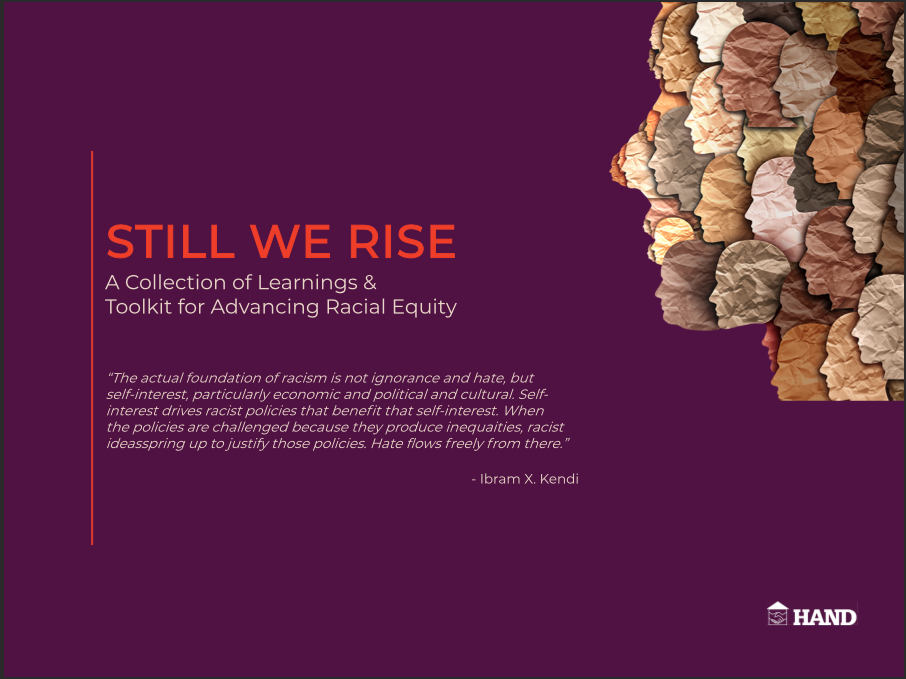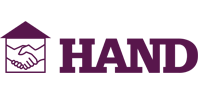Maryland DHCD’s Emergency Rental Assistance Program
The Maryland Department of Housing and Community Development is administering federal emergency rental funding in two ways, directly to local jurisdictions through the Maryland Eviction Partnership Program and to property management on behalf of tenants residing in affordable rental properties that received federal or state financing through the Assisted Housing Relief Program. Local jurisdictions are operating rental assistance programs independently, see here for each counties’ program details and directions for how to apply for assistance. As of July 31 2021, more than $58 million has been provided through Maryland DHCD’s Emergency Rental Assistance Program (ERAP) to nearly 10,000 renters in the state of Maryland. Maryland will also receive an additional $352 million through a second phase of the Emergency Rental Assistance Program and is currently making plans for distribution.
Interested in Maryland’s relief fund distribution data? The Maryland DHCD launched its’ Emergency Rental Assistance Data Dashboard to track the progress local jurisdictions are making in distributing relief funds for tenants and landlords affected by the COVID-19 pandemic. The dashboard which will be updated on a monthly basis to show progress focuses on the first round of funding through the federal ERAP that was launched in Maryland in May 2021. The dashboard has information on specific county programs, demographics and data on marketing and outreach efforts. To access the dashboard, visit rentrelief.maryland.gov and click on “Data Dashboard.”
Housing Finance Professionals, Developers, Policymakers, Academics, & Other Affordable Housing Stakeholders: The NHP Foundation & Enterprise Wants You to Participate in Their Survey
The NHP Foundation & Enterprise Needs You!
The NHP Foundation and Enterprise invites you to participate in their survey. The goal of the survey is to offer a comprehensive look at lessons learned over the last 10 years of affordable housing policy challenges, starting from the Great Recession, up until now. Findings will be presented this fall at the NHP Foundation’s 5th Annual Symposium, A Decade of Rental Housing Vulnerability: Lessons Learned from Financial Crisis to Coronavirus. The survey should take only 15 minutes and is available here. The survey deadline is September 24.
Still We Rise | A Collection of Learnings & Toolkit for Advancing Racial Equity
“The actual foundation of racism is not ignorance and hate, but self- interest, particularly economic and political and cultural. Self-interest drives racist policies that benefit that self-interest. When the policies are challenged because they produce inequalities, racist ideas spring up to justify those policies. Hate flows freely from there.”-Ibram X. Kendi
 For the last six years, HAND has been intentional in our approach of reaching beyond the symptoms of inequity to address the root causes that amplify housing disparities and restrict access to opportunity for communities of color. If you’ve been following our journey, you know we have prioritized educating our members on racial equity issues and how they intersect with our work in real estate and community development – from 2015 when we began integrating trainings on fair housing and best practices for working with returning citizens; to the 2018 Annual Meeting featuring the “Undesign the Redline” exhibit on the history of discrimination and housing policy; and last year’s launch of the “Red Lines, White Papers, and Blue Prints” learning series designed to further build members’ capacity in operationalizing racial equity.
For the last six years, HAND has been intentional in our approach of reaching beyond the symptoms of inequity to address the root causes that amplify housing disparities and restrict access to opportunity for communities of color. If you’ve been following our journey, you know we have prioritized educating our members on racial equity issues and how they intersect with our work in real estate and community development – from 2015 when we began integrating trainings on fair housing and best practices for working with returning citizens; to the 2018 Annual Meeting featuring the “Undesign the Redline” exhibit on the history of discrimination and housing policy; and last year’s launch of the “Red Lines, White Papers, and Blue Prints” learning series designed to further build members’ capacity in operationalizing racial equity.Invitation to Submit Proposals for Initiative to be Considered at the Heirs’ Property Prevention and Funders’ Forum
Heirs’ property occurs when a property owner dies intestate or with a will that leaves property to multiple beneficiaries, resulting in a fractured or entangled title. Left unresolved, this becomes a barrier to the ability to sell, collateralize, improve, or otherwise transfer the property. Because heirs’ property is disproportionately found in racial and ethnic minority, low-wealth, rural, and distressed urban communities, it is a critical barrier to minority homeownership and the creation of generational wealth and racial equity. As a significant contributor to blight and unrealized equity in poor neighborhoods throughout the country, the scale and pervasiveness of this challenge is shocking. For example, in the state of Georgia, $34 billion worth of tax appraised property is probable heirs’ property according to a 2017 USDA study. In 1980, the Emergency Land Fund estimated that 41 percent (3.8 million acres) of all Black-owned land in the Black Belt region was heirs’ property.
On December 2, 2021 in Atlanta, GA, the Funders’ Forum will seek to bring together potential funders with dozens of nonprofit and other organizations from 22 states and the District of Columbia. The intended outcome of this forum is to establish a capital, human, and organizational support basis for heirs’ property resolution and prevention pilot initiatives in the following areas: education and awareness; pro-bono legal services; academic research; local government innovation; and developer/contractor driven affordable housing initiatives. Potential funders, including philanthropic and other grant and resource providers, law firms, financial institutions, and builder and realtor trade groups, will have the opportunity to hear from nonprofits and other organizations as they pitch scaled pilot solutions to this group in an in-person and virtual environment. The forum has been designed to allow funders and organizations with initiatives in their market to connect and determine their mutual interest in funding a proposed solution.
Kaiser Permanente Announces a New RFP
In June, Kaiser Permanente sponsored a Regional Forum on Homelessness to foster collaboration among cities and counties in Greater Baltimore, suburban Maryland, DC, and northern Virginia to reduce the prevalence of homelessness. This regional collaboration is Kaiser’s answer to homelessness since people experiencing homelessness often cross city and county boundaries. In an effort to continue working to provide solutions to end homelessness, Kaiser Permanente intends to award at least two grant awards of $50,000 each before the end of 2021 to nonprofit organizations that are working to address homelessness in more than one city or county. The grant term will be from January 1, 2022 through December 31, 2022. The deadline for applications is September 9, 2021. The Request for Proposals is here, and you can also access the project budget template and logic model template, referenced within the RFP.
Latest from Facebook
[custom-facebook-feed]
Annual Meeting Important Information
Payments: Orders placed on the event registration page are not confirmed until payment is received. A confirmation email will be sent to the email address listed in your registration. If you paid by credit card, a receipt will be sent to the email address listed in your registration. If you mail a check, all payments must be received within seven days of completing your registration form. Checks should be remitted to: HAND, PO Box 48386, Washington, DC 20002
Guest List & Dietary Preference: If your registration includes a luncheon table or multiple guests, please submit guest names and menu choices by May 1, 2020. Submit guest names here.
Housing Expo: Plan to exhibit? Download the Housing Expo FAQs here.
Omni Shoreham Hotel Room Block: For attendees looking to secure overnight accommodations on May 25th, HAND has secured a rate starting at $189 for conference attendees. There are a limited amount of rooms available, so visit this link today to reserve your room. May 10th is the last day to secure a room at the discounted rate.
Ad Submission: The artwork for advertisements should be submitted to annualmeeting@handhousing.org. You can download the ad spec sheet here. Deadline for ad submission is April 13, 2020.
Cancellations & Changes: If you wish to cancel or change your registration for the Annual Meeting & Housing Expo, please send a request in writing to annualmeeting@handhousing.org. All cancellation requests made prior to April 27th will receive a 50% refund. For cancellation requests made after April 27th, no refund will be provided.
Door Prizes: Are you interested in donating a door prize to this year’s Annual Meeting? Email annualmeeting@handhousing.org to coordinate with our team.
Latest News
- Fellowship Square and Community Partners: Uniting for Impact at the Annual Summer Food RallyJuly 2, 2024 - 2:17 pm
- Five Minutes With Lauren MarcusMarch 4, 2024 - 10:26 pm
- APAH Resident Services 2023: Residents Making the Most of Their HomeDecember 14, 2023 - 3:49 pm
- Five Minutes With David NisivocciaDecember 13, 2023 - 5:50 pm
New Members
Contact Information
Mailing Address:
HAND
1330 New Hampshire Avenue NW, Suite 124
Washington, DC 20036
info@handhousing.org
202.384.3764
Staff Directory
MEDIA INQUIRIES?
communications@handhousing.org
INTERESTED IN HAND UPDATES?
Sign up for the distribution list here.




